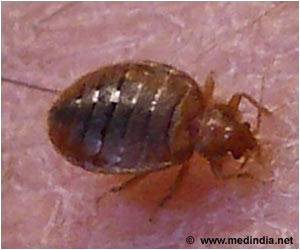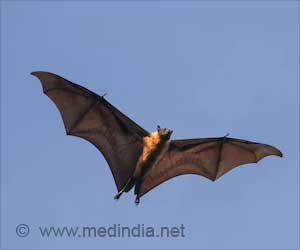Scars on Severion Wayet's arms reveal where the flesh-burrowing Guinea worms burst through her skin. It was an agonising process that lasted days as the worms, measuring around one
Scars on Severion Wayet's arms reveal where the flesh-burrowing Guinea worms burst through her skin.
It was an agonising process that lasted days as the worms, measuring around one metre (three feet) in length, fought their way out of her body."They were very painful, you cannot rest or sleep," the young mother said, her baby resting on her back in a goatskin carrying pouch.
Her village of Lojura, a remote settlement in the hot, dusty bush of south Sudan's Central Equatoria state, already has enough to deal with following a brutal civil war that ended just five years ago.
But it is also one of the world's worst areas for Guinea worm.
Also known as dracunculiasis, from the Latin for "little dragons", the worm is a particularly painful water-borne parasite that can leave people weakened and sick for months every year.
Caught by drinking contaminated water, the worm larvae grow into wriggling creatures up to a metre in length, and mate inside the human body.
Advertisement
"Many people have suffered from the worms, but we want them to end," said Wayet. "I do not want my children to suffer like that."
Advertisement
The Carter Centre -- the not-for-profit organisation founded by former US president Jimmy Carter -- has been working in Sudan since 1989 to exterminate the worm once and for all.
He said that when they started their project in southern Sudan they found more than 100,000 cases of infection.
"Last year we had about 2,500 cases, and we believe that in the next two or three years we will have zero cases of Guinea worm in Sudan," he said during a mid-February visit to Lojura where he met worm-infected villagers.
Infections worldwide have been slashed by 99 percent from some 3.9 million people in 1986 to 3,500 in 2009, according to the World Health Organisation.
Now the worms are found only in small and isolated pockets of Ghana, Mali and Ethiopia, with its final main stronghold in grossly underdeveloped south Sudan.
South Sudan was cut off from health workers for years by the 22-year civil war between southern rebels and the Arab-dominated Khartoum government, during which some two million people died.
Peace was signed in 2005 but tensions remain high. Nationwide elections are set for April and an independence referendum for next year.
Medical experts believe that it would be possible to eradicate Guinea worm within a few years.
"When we succeed," Carter said, "this will be the second disease in history ever eradicated from the face of the earth -- the only other one was smallpox now almost 20 years ago."
Although there is no direct treatment, the breeding cycle can be broken by making sure people do not wash in sources of drinking water while the worm is emerging from the skin.
Moreover, thousands of volunteer health workers have been trained to ensure people use a simple water filter for drinking potentially unsafe water.
Many in the community here wear a water filter tube around their neck, and Carter predicted that Guinea worm would be the first disease to be wiped out without the use of a vaccine or medicine.
Worms mainly exit from the legs and arms but affected communities say they have been known to emerge from the head, sexual organs and even the eyes.
Eradicating it would have a major impact.
Extracting an entire worm requires winding it around a small stick -- like twisting spaghetti on a fork, but victims can be incapacitated for months.
The traditional universal medical symbol, of a snake wrapped around a pole, is thought by many to have its roots in the treatment of Guinea worm.
The peak period for the worms to emerge coincides with the crucial farming months, which may explain why, in Mali, Guinea worm is called "the disease of the empty granary," according to the WHO.
South Sudan's health minister, Joseph Manytuil Wejang, warned that without its eradication, thousands of people would be incapacitated every year in the poorest communities.
"The potential to improve the social and economic conditions is limitless," Wejang added.
If the worms are tangled around muscles -- something that can often happen -- twisting the parasites out is especially painful, and can make the process even longer.
Source-AFP
SRM









